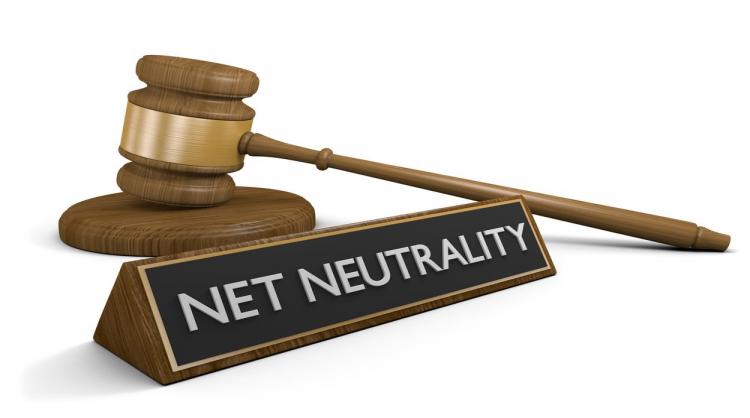DC Circuit Court Net Neutrality Decision – A Victory for Big Government
June 17, 2016 | by Andrew Regitsky

Physicists define the multiverse as a hypothetical set of finite and infinite possible universes, including the universe in which we live. If this is true, Internet service providers (ISPs) and cable companies are strongly advised to seek some other universe to operate in, for this universe has ceased to be a friendly one for them. That is because in a devastating decision released on June 14, 2016, the DC Circuit Court of Appeals completely affirmed the FCC’s Open Internet Order, granting the Commission virtually unchecked authority over the Internet.
One by one, the Court systematically eviscerated all of the arguments against the Open Internet Order made by ISPs. Most importantly, the Court bought the Commission’s argument that broadband Internet access service can be reclassified as a Title II telecommunications service. It did so by buying the FCC’s argument that ISPs offer two separate services - a broadband telecommunications Internet access service, which provides the ability to transmit data to and from the Internet and add-on applications that are generally information services, such as email and cloud-based storage programs. Thus, from a consumer’s perspective, broadband Internet access service is today sufficiently independent from these information services that it constitutes a separate offering - a telecommunications service.
Once the Court found that broadband Internet access service was appropriately classified as a Title II telecommunications service, the other arguments made by the appellants fell like dominoes.
First, the Court found that the Commission has the authority to control the exchange of traffic between ISPs and edge (content) providers to ensure broadband providers do not use the terms of interconnection to disadvantage edge providers or prevent consumers from reaching the services and applications of their choosing.
Next, the Court found that the Commission has the authority to reclassify mobile broadband Internet access service as a telecommunications service by accepting the argument that the Commission’s 2015 expanded definition of “public switched network” includes any common carrier switched network . . . that use[s] the North American Numbering Plan, or public IP addresses, in connection with the provision of switched services.
Finally, the Court found that the Open Internet Order did not violate the Administrative Procedure Act (APA) by failing to provide the public sufficient notice and opportunity to comment on the possibility that the Commission might reclassify broadband as a telecommunications service. According to the Court, although in the Notice of Proposed Rulemaking in this proceeding, the Commission clearly left the impression that it would be relying on section 706 of the Telecommunications Act to regulate the Internet, it also asked for comments on whether it should reclassify broadband. Although this was only done in a single paragraph, it was enough to satisfy this easily swayed Court.
Many will argue that the Court’s decision was political, since the two Democratic-appointed judges supported the FCC while the lone Republican-appointee dissented from the decision. Frankly, it is easy to see why. Much of the Court’s reasoning, especially regarding whether the Commission satisfied the APA, is weak, written primarily to support already decided on conclusions. Nevertheless, this is our system of government and everyone has to live with this decision.
Despite their bluster that they will appeal the decision, the options going forward for ISPs and cable companies are very limited. They could seek a rehearing by the entire DC Circuit Court. However, with the Court packed with Democrats in recent years, they would almost surely lose again. They could and likely will appeal the decision to the U.S. Supreme Court. However, that Court may choose not to take the case since even the Republican dissenter on the DC Circuit agreed with the fundamental point that the FCC has the authority to reclassify broadband Internet access service. He dissented only because he believed the Commission’s rationale for reclassification was inadequate. Moreover, even if the Supreme Court did take the case, with only eight justices it is likely that any decision would end in a 4-4 tie, allowing the lower Court’s decision to stand.
Of course, Congress could write new rules for Internet regulation. However, with this win in their pockets, Democrats have no reason to compromise on new rules, and regardless, President Obama would veto any rule diminishing the FCC’s Internet authority. Thus, the only realistic way for the rules to change would be the election of a Republican president. Based on the latest polls, that is unlikely to occur at least until 2020.
So how will the FCC use its newly sanctioned authority? First, we likely to see a formal investigation into the “zero data” services offered by many ISPs. We are also likely to see a flood of complaints against ISP prices, terms and conditions. It will be interesting to see whether the Commission stays true to its word and declines from regulating Internet pricing. We find that doubtful.
Of course, too much FCC intervention could harm Internet investment and ultimately cost jobs, spurring a backlash. As Judge Williams noted in his dissent to the Court’s decision:
The ultimate irony of the Commission’s unreasoned patchwork is that, refusing to inquire into competitive conditions, it shunts broadband service onto the legal track suited to natural monopolies. Because that track provides little economic space for new firms seeking market entry or relatively small firms seeking expansion through innovations in business models or in technology, the Commission’s decision has a decent chance of bringing about the conditions under which some (but by no means all) of its actions could be grounded—the prevalence of incurable monopoly (Dissent of Senior Circuit Judge Williams, p. 69).
By Andy Regitsky, CCMI

